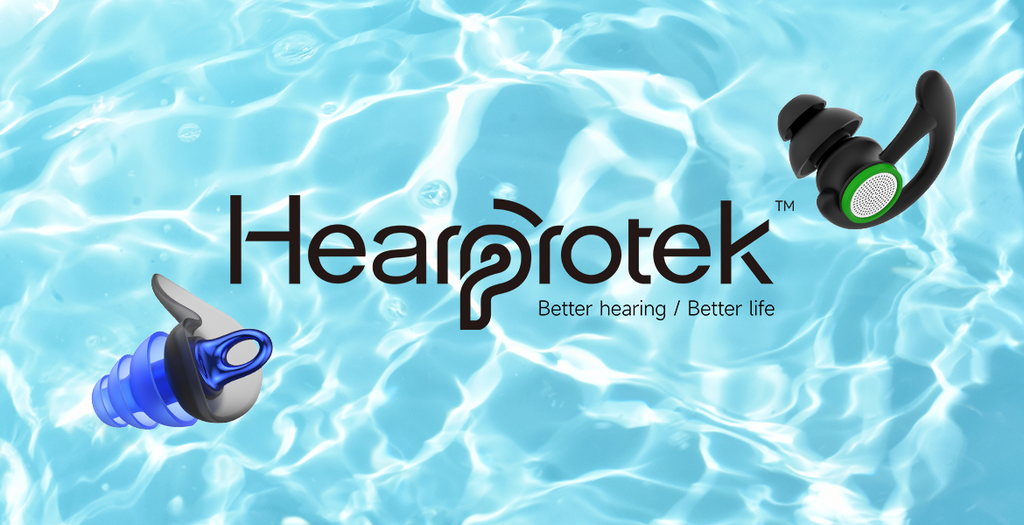Yes, wearing earplugs while swimming is generally safe when you use the right earplugs and follow proper usage guidelines. Swimming is a popular activity for exercise and recreation, but water getting in the ears can cause pain, infections, and discomfort. Earplugs may seem easy, but choosing the right pair and using them properly is crucial. This article will explore the benefits and precautions of wearing earplugs for swimming to help you decide if they are right. Optimizing ear health and safety in the water ensures an enjoyable swimming experience.
Potential Benefits of Using Swimming Earplugs
Wearing snug-fitting earplugs designed for the pool can provide several advantages:
- Prevent pain from water pressure - Earplugs seal out water to protect eardrums from painful pressure changes, especially when diving.
- Reduce swimmer's ear risk - Keeping water out lessens moisture buildup in ears that breed bacteria, leading to painful infections.
- Block loud noise - Earplugs can dampen noise in busy pools where yelling, splashing, and echoes bother some swimmers.
- Improve comfort - Those bothered by water in their ears may enjoy swimming more using plugs. Kids may swim longer without complaining.
Precautions and Proper Usage of Swim Earplugs

While earplugs can make swimming more comfortable, certain safety precautions are crucial:
- Only wear earplugs when a lifeguard is on duty. You must be able to hear warnings of danger.
- Avoid generic foam earplugs; get customized plugs for the best fit and seal while still allowing you to hear voices.
- Wear a snug swim cap over the earplugs to keep them securely in place. A loose cap can cause lost plugs.
- Carefully insert plugs without pushing them too deeply to avoid ear canal abrasions or infection. Follow all usage instructions.
- Remove earplugs after every swim session to let ears air out and drain naturally. Don't wear them all day.
- Consult an ENT doctor if you have a perforated eardrum, current infection, or ear tubes before using earplugs.
Proper usage preserves safety while minimizing ear issues in the long term. Now, let's explore choosing high-quality earplugs designed for swimming.
Choosing High-Quality Swimming Earplugs

For the best fit, comfort, and functionality, seek earplugs designed for swimmers rather than generic foam ones. Here's what to look for:
- Silicone or molded thermoplastic material - For a gentle, secure seal that keeps water out without irritating the ear canal when inserting and removing.
- Snug but comfortable fit - A tight enough seal to block water and pressure but not so tight that it rubs or moves the plugs. Getting a professional fit is ideal.
- Some sound transmission – High-quality earplugs won't block all sound, just dampen it. You should be able to hear voices and important noises.
- Buy from a reputable water safety brand - Trusted brands like Hearprotek carefully engineer earplugs for effectiveness and safety.
Conclusion
Wearing the proper earplugs when swimming can allow you to reap the benefits of protected ears and noise reduction while still staying aware of your surroundings. Seek customized plugs from a trusted brand that are designed for water sports. Follow all usage guidelines carefully and remove earplugs after each swim. With the right ear protection, kids and adults can splash around with less ear pain and a reduced risk of infections. Consult a doctor if you have any ear conditions before using earplugs in the water.
FAQs

- Q: Are swimming earplugs safe for kids?
- Yes, when used properly under adult supervision. Choose child-sized plugs and teach kids to carefully put them in and take them out. Always remove after swimming so ears can drain.
- Q: How often should I replace swimming earplugs?
- Replace earplugs at least every swim season or immediately if you notice damage or a loose fit compromises the seal and water protection. Don't wait until they wear out completely.
- Q: Can I hear at all with swimming earplugs?
- High-quality earplugs are designed to allow you to still hear voices and important noises. You should not wear earplugs that completely block sound while swimming.










